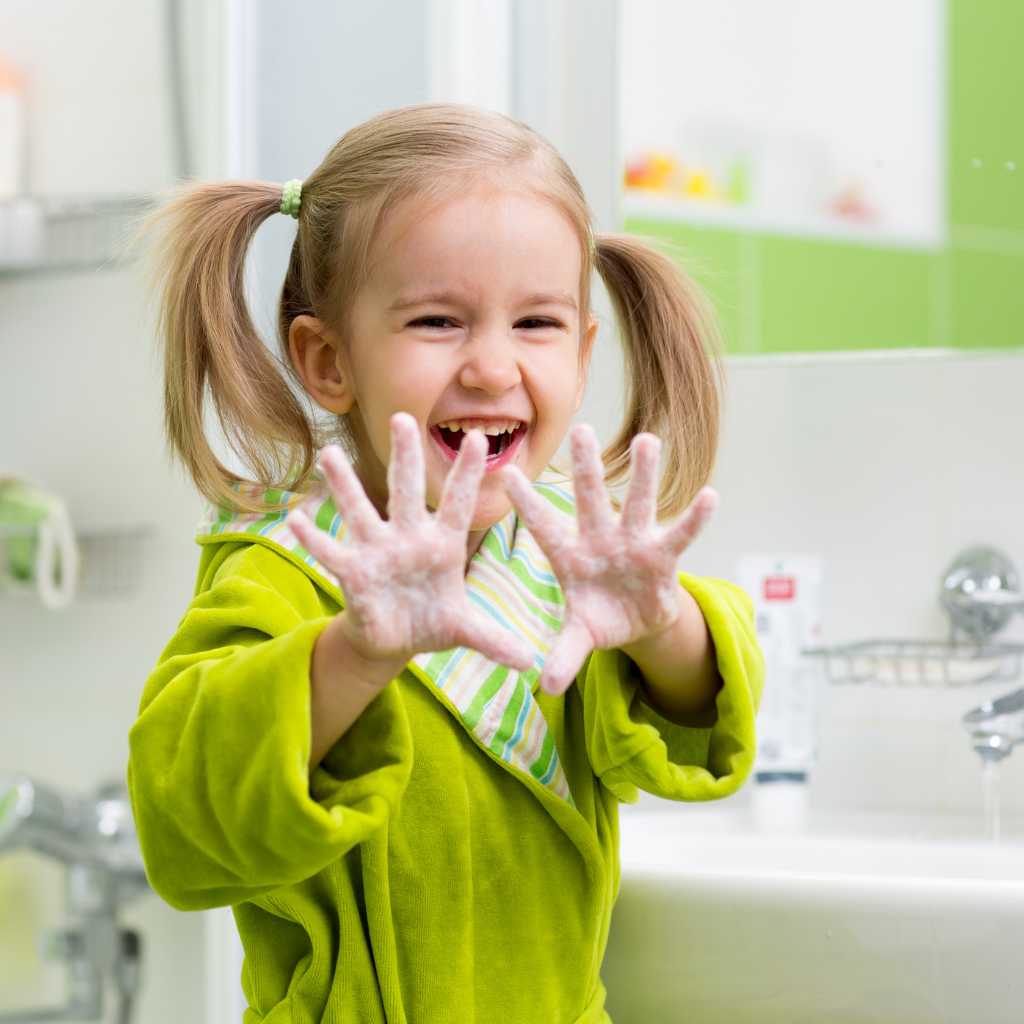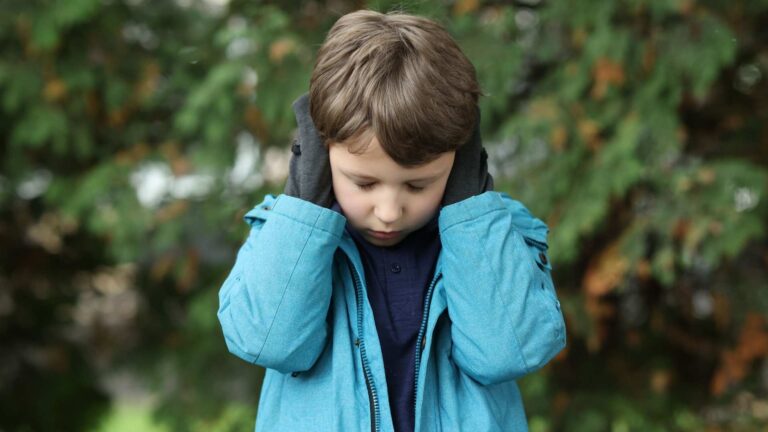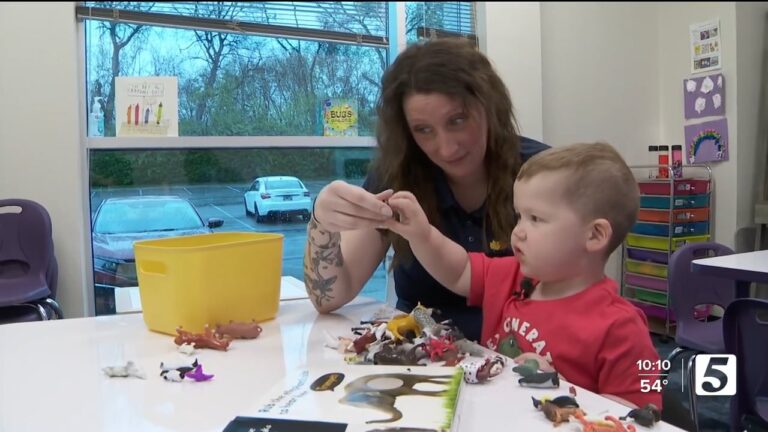Table of Contents
How to teach handwashing to a child with autism?
Teaching basic tasks such as handwashing for autism can seem challenging. It is an activity that many of us take for granted, but for some children with autism spectrum disorder (ASD), it represents a complex set of skills that they must learn step-by-step.
Hand washing, among other self-care activities, is vital for the health, safety, and well-being of ourselves and those around us. However, the challenges that some families with neurodiverse members face may lead them to wonder: how to teach handwashing to a child with autism? The key is to understand their individual needs, adapt the process to their abilities, and rely on methodologies such as Applied Behavioral Analysis (ABA therapy).
In this ABA Centers of Tennessee blog, we’ll guide you through navigating handwashing and autism through practical strategies, highlighting how ABA therapy can be an essential ally in this learning process. Keep reading to learn more!
Autism Daily Living Skills: Understanding the Importance
Handwashing for autism is one of the most important daily living skills for children to learn. Keeping hands clean is vital for preventing the spread of germs and disease, a fact that became even more relevant during the COVID-19 pandemic. However, this behavior involves a series of steps, such as using soap and water and scrubbing hands to remove dirt that can affect health.
The Centers for Disease Control and Prevention (CDC) emphasizes that frequent hand washing can reduce the likelihood of getting gastrointestinal illnesses by up to 40% and respiratory diseases by up to 21%.
Additionally, beyond physical health, mastering this skill promotes autonomy and boosts self-esteem in children with autism, who often face additional challenges in learning hygiene habits. However, when parents and caregivers want to teach handwashing for autism, there are a number of challenges to keep in mind to make the process more manageable.

The Challenges of Handwashing for Autism
When we talk about autism and handwashing, we may encounter specific challenges. These include:
- Sensory sensitivities: Handwashing for autism can be challenging if the child experiences sensory sensitivities. Contact with water, soap, or even the sound of the faucet can be overwhelming.
- Disruption in routine: Routines are often essential in the life of an individual with autism. Routines allow them to have a sense of security and predictability, and some neurodiverse folks struggle with day-to-day changes. Introducing autism daily living skills may cause resistance or anxiety.
- Difficulty following multiple instructions: Hand washing involves several steps, such as turning on the faucet, wetting the hands, applying soap, scrubbing, rinsing, and drying. This series of steps can be complex for individuals with autism who struggle with following sequences.
- Coordination problems: Some children may have difficulty making precise movements. Hand washing often involves the coordination of turning on the faucet, picking up soap, scrubbing, rinsing, and drying hands. Some children with ASD may require support to execute these movements.
Understanding the challenges in handwashing for autism is the first step in finding solutions that fit each child’s needs.
Autism and Handwashing: How ABA Therapy Can Help
ABA (Applied Behavior Analysis) therapy is an evidence-based methodology that helps teach essential skills to children with autism. This therapy focuses on breaking down complex tasks into more manageable steps and uses strategies such as:
- Prompts: To guide the child to complete each step
- Positive reinforcement: Rewarding desired behaviors to motivate learning
- Fading techniques: Gradually reduce assistance until the child can perform the task independently

In the case of handwashing, ABA therapists may employ:
- Visual aids: Posters with illustrations showing the steps
- Social stories: Narratives that explain the process and its importance
- Role-playing: Practicing handwashing in a simulated setting
- Video modeling: Videos showing someone washing their hands correctly
These tools help children understand and acquire this essential skill in an effective way that considers their learning needs.
Practical Strategies for Teaching Handwashing for Autism
While ABA therapy can be a vital tool for learning daily living skills in children with autism, parents and caregivers play an essential role in reinforcing learning at home.
These are some practical strategies that parents and caregivers can implement:
- Create a sensory-friendly environment: Adjust the water temperature, use fragrance-free soaps if the child is sensitive to odors, and use dim lights in the bathroom.
- Use visual aids: Place diagrams or stickers in the bathroom that show the steps of handwashing. You can also use a consistent word or signal to tell your child that it is time to wash their hands. Visual cues and consistency in the routine can help your child acquire the behavior more naturally.
- Include handwashing in the daily routine: Make it part of regular activities, such as before eating or after playing.
- Model the behavior: Wash your own hands while explaining each step out loud. Demonstrate each handwashing step to your child and invite them to imitate you. Practicing handwashing for autism as a family can be a powerful learning strategy.
- Make it fun: Use songs or games to keep the child interested in handwashing. You can also use tools such as colorful soaps to make the experience more enjoyable.
- Be patient: Remember that each child learns at their own pace. Celebrate each achievement and use positive reinforcement to keep your loved one motivated. Remember that the most important thing is progress, not a perfect result! Teaching handwashing for autism takes time and patience; don’t be discouraged.
- Reinforce accomplishments: Praise and reward the child when they complete each step correctly. You can use everything from praise and words of encouragement to small toys or their favorite snacks.
These strategies not only facilitate learning but also make handwashing for autism a positive experience.
Enhancing Autism Daily Living Skills with ABA Centers of Tennessee
Handwashing for autism is a fundamental skill that requires understanding, patience, and the right tools. With the support of ABA therapy and practical strategies, children with autism can learn to wash their hands and develop other essential daily living skills.
At ABA Centers of Tennessee, we have a team ready to provide ABA therapy focused on the individual needs of each child or teenager with ASD.
If you would like to learn more about how ABA therapy can benefit your child, please feel free to contact us. Call us at (844) 423-9483 or contact us here. Together, we can support your child on their path to autonomy and well-being.






